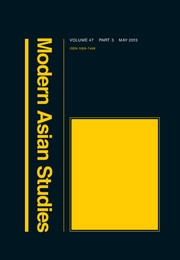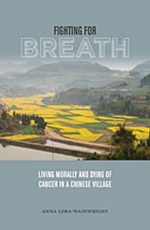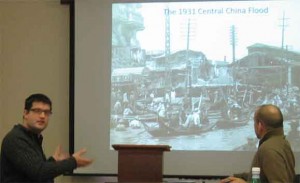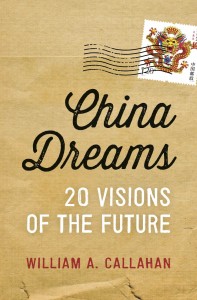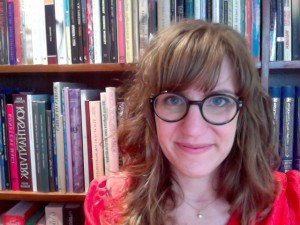 It is no exaggeration to say that I owe my career to the BICC. My BICC studentship enabled me to study Chinese from scratch to the point where I can use it for my research and in building networks with scholars in related fields in China. This commenced with a two-year MPhil in Modern Chinese Studies at Oxford, which included six months’ study in Beijing and intensive language and area studies research training. I completed my MPhil dissertation under the supervision of Professor Rana Mitter on the evolving Chinese perspective on and representation of the Shanghai Municipal Council and the broader International Settlement from the Republican era to the present. This had a direct bearing on my doctoral research, for which I returned to Bristol (where I had completed my BA and MA) to work with Professor Robert Bickers, the leading expert on treaty-port Shanghai.
It is no exaggeration to say that I owe my career to the BICC. My BICC studentship enabled me to study Chinese from scratch to the point where I can use it for my research and in building networks with scholars in related fields in China. This commenced with a two-year MPhil in Modern Chinese Studies at Oxford, which included six months’ study in Beijing and intensive language and area studies research training. I completed my MPhil dissertation under the supervision of Professor Rana Mitter on the evolving Chinese perspective on and representation of the Shanghai Municipal Council and the broader International Settlement from the Republican era to the present. This had a direct bearing on my doctoral research, for which I returned to Bristol (where I had completed my BA and MA) to work with Professor Robert Bickers, the leading expert on treaty-port Shanghai.
My PhD was entitled ‘Managing Shanghai: The International Settlement administration and the development of the city, 1900-1943’. It examined the nature and functions of the council which ran the International Settlement, the heart of Shanghai, in the decades of dramatic change in the first half of the twentieth century. I argued that the council functioned as a semi-colonial and transnational authority – concepts which I tested within the unique political environment of Republican China’s treaty ports. This provides a new, precise formulation of the nature of western colonialism in China that has broad ramifications for the fields of Chinese history and colonial history.
The BICC supported my research comprehensively, including the provision of tailored advanced Chinese reading classes in Bristol and attendance at Republican Chinese text reading classes in Oxford. It also paid for me to spend a year conducting research in the newly opened Shanghai Municipal Archives, where I found the bulk of my materials, and to continue my language study with private tuition while there. In addition, I was able to secure funds from the Worldwide Universities Network to attend a masterclass in Sydney and conduct research in the State Library of New South Wales, and I spent three months researching as a fellow of the Kluge Center in the Library of Congress, Washington, D.C. My dissertation was awarded the University of Bristol’s annual Faculty Prize for the Best Dissertation in the Arts and I am currently adapting it for publication as a monograph.
During my PhD I revised my MA dissertation for publication, using my new Chinese language skills to include a broader range of sources. The resulting article, ‘The Raj on Nanjing Road: Sikh Policemen in Treaty-Port Shanghai’, appeared in Modern Asian Studies last year.
When in the final stages of writing up my dissertation, I began a one-year post as Departmental Lecturer in Modern Chinese Studies at Oxford’s Institute for Chinese Studies. It was an excellent, though demanding, first academic position, furnishing me with a broad range of teaching experience on modern China and experience of administration, including directing the MPhil in Modern Chinese Studies. I moved from Oxford to my current post as the Helen Bruce Lecturer in Modern East Asian History. Mine is one of a number of newly-created posts in Chinese and East Asian Studies as departments have responded to student demand to study modern China, and the BICC has been instrumental in ensuring the next generation of China scholars are available to meet this demand.
I direct the BICC Chinese Urban Studies Network, based in Aberdeen with partners at the University of Leicester’s Centre for Urban History, Lyon’s Institut d’Asie Orientale, and the Shanghai Academy of Social Sciences. We held our first workshop in December 2012 and will be following up with a visit to Shanghai in August 2013 and a major conference in January 2014, bringing together scholars from different disciplines concerned with the study of Chinese cities. The BICC thus continues to be a major force in my life as a researcher, as I consider the role played by the Shanghai Municipal Council, and similar institutions in other treaty ports, in shaping urban China.
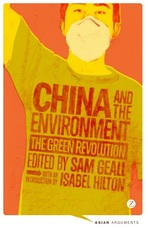 Sam Geall, Departmental Lecturer in Human Geography of China at Oxford and BICC funded student, has edited China and the Environment: The Green Revolution
Sam Geall, Departmental Lecturer in Human Geography of China at Oxford and BICC funded student, has edited China and the Environment: The Green Revolution
